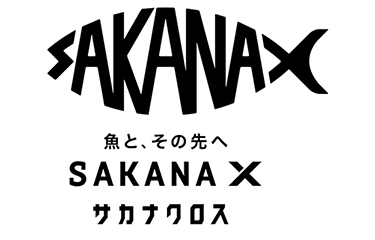Maruha Nichiro's "Sakana" rebrand embraces shifting consumer preferences

Tokyo, Japan-based Maruha Nichiro has rebranded with the goal of increasing its public profile and encouraging consumption of its seafood products.
The company was established in 2007 when two separate companies – Maruha and Nichiro – merged. Nearly a decade after the merger, the company performed a public study that found public recognition of its brand was relatively low, Maruha Nichiro Corporate Branding Department Public Relations Misae Fujita told SeafoodSource. In response, in 2018, the company began a strategic push to enhance its brand recognition.
The company changed its logo to a simpler font, while retaining two waves in the shape of the letters M and N. It also asked customers and business partners what the positive characteristics of the company were, and through that created a new slogan: “For the Ocean, for Life.” Going further, the company reevaluated its visual messaging, ultimately decided to update the pictures it used in its branding to close-up images of nature with blocks of bright vivid colors – branding it now uses in signage, on its website, and on business cards.
In 2020, in recognition of its successful efforts, the company was named to Rebrand magazine's “Rebrand 100 best” list, which annually recognizes excellence in brand repositioning.
“Though Maruha Nichiro believes it has a responsibility to nurture the finite natural resources it harvests, the good work it has been doing for many years shepherding and safeguarding the oceans, as well as its sustainable farming practices on land, is all but unknown to consumers,” Maruha Nichiro told Rebrand. “We needed to find a way to reposition the company as part of the solution to resource conservation, not the problem.”
The benefits of the shift were immediate: Just months after the launch, surveys found Maruha Nichiro’s positive brand image jumped by 40 percent.
“Essentially, Maruha Nichiro wanted to let the world understand what the character of our company is – the worldview that only Maruha Nichiro can express,” Maruha Nichiro Corporate Branding Department PR Section General Manager Etsuko Kobayashi said. “What are our strengths? So we have to look back at our basic principles and from there, we will let the world know the meaning of our existence. And from now, everyone at Maruha Nichiro has to consider issues like sustainable growth together and start our planning from there.”
Maruha Nichiro hasn’t rested on its laurels with the successful rebrand – it continues to develop new branding to promote seafood consumption.
The company recognized that despite washoku, or traditional Japanese food, being recognized by the United Nations as an important part of cultural heritage for humanity, domestically, much of the seafood that makes up washoku has seen declining consumption. Japan once boasted the highest per capita seafood consumption in the world but now ranks below South Korea and Indonesia, with its per capita seafood consumption continuing to decline.
For that reason, the company launched “Sakana X” – pronounced “Sakana cross.” (Sakana means “fish" in Japanese.) The branding, first showcased by Maruha Nichiro during the 2022 Japan International Seafood Show, features a series of “Sakana X” panels highlighting key sales points for the company's seafood products, Fujita told SeafoodSource.
Fujita said through its survey work, the company has found seafood consumption to be highly correlated with income: people with a higher income tend to eat more fish, while single-person households with low disposable income tend to eat less fish. Maruha Nichiro's research found Japanese consumers to be highly price-conscious and viewing fish as more time-consuming than meat to prepare and clean up. However, it also found a high awareness that fish is healthy.
The research led Maruha Nichiro to work harder to reduce barriers to seafood consumption among those with lower incomes. The company expanded its offerings of low-priced fish fillets and pushed to market its seasonal and locally produced fish with the lowest possible market price, banking on lower transportation costs to make up its margins. It also recommended retailers offer lunchbox meals and individual-sized side dishes made with fish targeted at single-person households.
Maruha Nichiro's surveys also found that higher-income consumers didn’t mind paying more for seafood in exchange for being able to avoid preparation and clean-up tasks. For those households – especially families with children – the company created a wider variety of side dishes containing seafood to meet a range of dietary preferences. The company also found higher-income consumers also tend to prefer value-added raw fish products, such as sashimi and sushi, as they are quick and easy to eat and they value freshness, and so it expanded its offerings of those products.
Through the Sakana X branding, Maruha Nichiro hopes to reach a broader audience in Japan with a broader message, highlighting its efforts to improve the sustainability of its supply chain and to embrace innovation.
“That’s why we made ‘Sakana X,’ to convey the diverse value of fish by combining it with topics that people want to know about, like sustainability or technology,” Fujita said. “If they are not interested in fish, but if they are interested in technology or sustainability, they can have a chance to learn about fish.”






Share